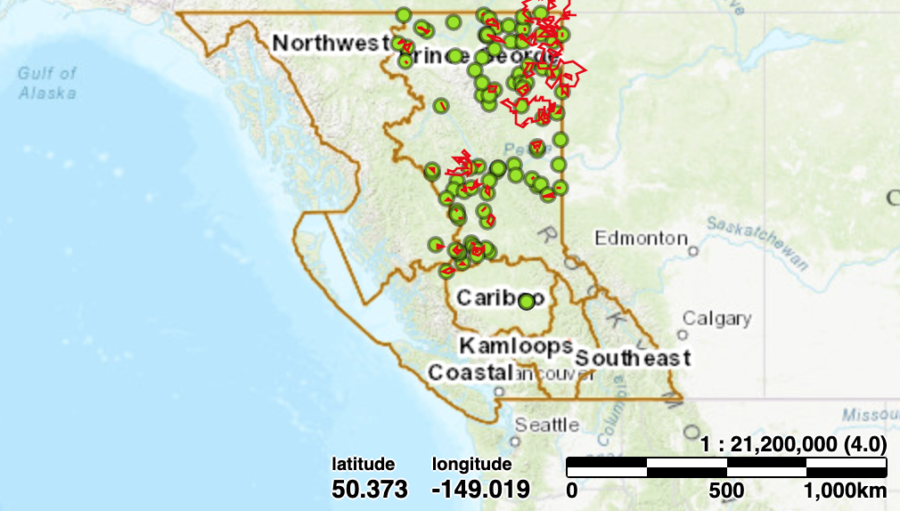Wildfire seasons have been getting longer since the 1970s, according to (among others) the USDA Climate Hubs.
“The wildfire season in Western states has extended from 5 months to over 7 months in length,” the department said. Since the 1980s, the annual number of large fires and area burned has significantly increased (according to a report by Anthony Westerling, Hugo Hidalgo, Daniel Cayan, and Thomas Swetnam in the journal Science). The average burn time of individual fires has grown from 6 days (between 1973 and 1982) to 52 days (between 2003 and 2012).
The increase in another wildfire phenomenon may spell the end of wildfire seasons altogether and turn wildland firefighting into a year-round effort, more than it already is.
“Zombie fires,” or wildfires that smolder underground during the winter before reemerging in the spring, are becoming more common in Arctic forests, according to a 2021 study published in Scientific American. The most likely cause was attributed to climate change.
“Contrary to the hypothesis that overwinter fires sustain themselves in carbon-rich, organic soil layers known as peat, the researchers learned that most of them had burned in drier, upland sites with dense tree populations; the find suggested fires had instead smoldered underground in woody tree roots,” another Scientific American article on the subject said.
The woody tree roots in British Columbia’s boreal forests are feared to be the next place where a zombie fire could emerge, continuing Canada’s record-breaking wildfire season of last year. As of January 18, the BC Wildfire Service map shows that around 100 active wildfires are still burning in the province, some of which are still smoldering underground and threaten to kick off yet another disastrous wildfire season this year.

It wouldn’t be the first time zombie fires foretold a bad fire season. At the beginning of 2023, British Columbia recorded 16 “carryover” fires, according to the Canadian newspaper The Globe and Mail, and BC Wildfire Service data shows that in most years since 2014, only five or fewer carryover fires were reported.
“A lot of people have talked about the 2023 fire season being over, but it’s not over,” said Sonja Leverkus, a BC wildland fire crew leader. “It is not over in northeast British Columbia. Our fires did not stop burning.”
